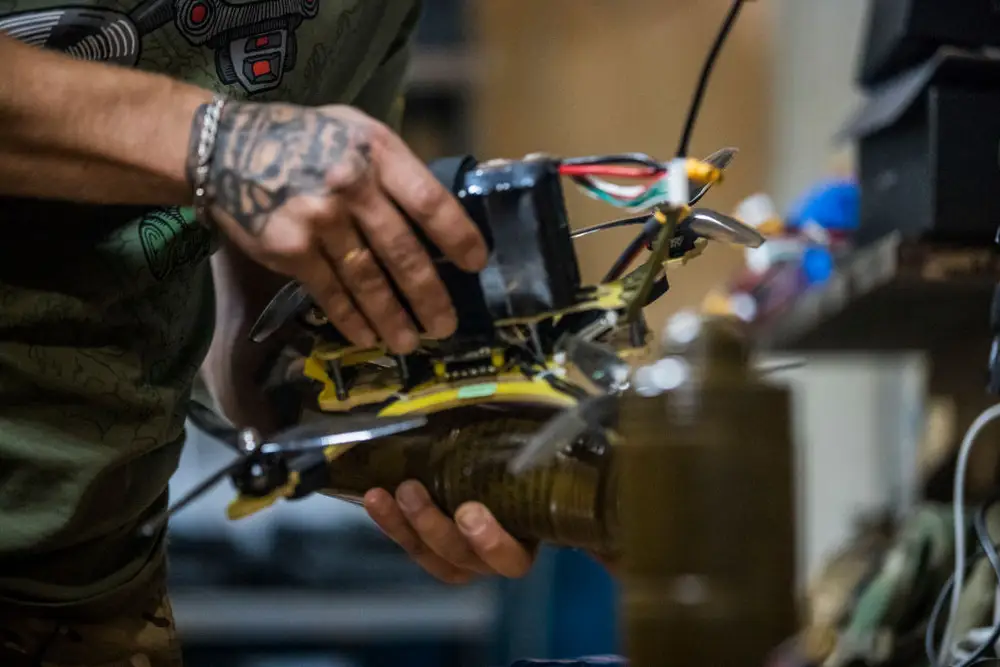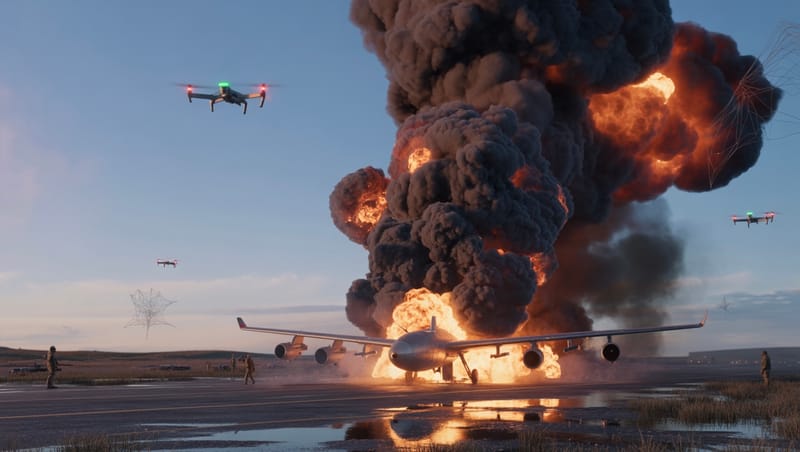Ukrainian Drone Reliance and the Fear of Chinese Remote Disabling: A Tenuous Balance in Modern Warfare
The Growing Role of Improvised Drones in Ukrainian Defense The evolving nature of modern warfare has seen an increased reliance on technology, and in recent times, the use of drones by the Ukrainian forces has been making headlines. Homemade drones have become crucial components in the Ukrainian military's

The Growing Role of Improvised Drones in Ukrainian Defense
The evolving nature of modern warfare has seen an increased reliance on technology, and in recent times, the use of drones by the Ukrainian forces has been making headlines. Homemade drones have become crucial components in the Ukrainian military's arsenal, especially in the face of continued tensions and skirmishes. Assembled by volunteer groups, these improvised explosive-dropping devices primarily use Chinese DJI copters as their base.
Ingenious Assemblage and Functionality
In a bid to enhance their tactical advantage, various Ukrainian units, such as the Adam Tactical Group, have increasingly turned to these makeshift drones. These First-Person-View (FPV) drones are the products of grassroots endeavors by volunteer organizations. The Kyiv Independent reports that these drones, which cost just a few hundred dollars, amalgamate 3-D printing techniques with components from the Chinese company, DJI. Once constructed, these drones are then modified to carry and drop explosives, offering a cost-effective way to deliver firepower.
The Looming Fear of Remote Disabling
While these drones have proven invaluable for Ukrainian forces, there remains a looming concern. The drones' reliance on parts from DJI, a Chinese manufacturer, has brought forth fears of potential interference. A drone technician with the Adam Group, identified as Vitalii, expressed concerns to the Kyiv Independent that China might opt to suspend the necessary accounts required for the drones to operate optimally.
The anxiety stems from DJI's protocol, which requires pilots to log into an account to navigate beyond height and distance constraints. If these accounts were to be suspended, the drones would essentially be rendered useless. As Vitalii starkly put it, these crucial pieces of reconnaissance machinery would be reduced to "nothing more than a coaster for your coffee."
The Balance of Power and Technological Reliance
This situation underlines the tenuous balance of power in modern warfare, where nations might find themselves dependent on foreign-made components, opening the door for potential vulnerabilities. As warfare increasingly leans on technology, nations will have to consider the strategic implications of sourcing and the potential for interference by foreign entities.
The Ukrainian case serves as a cautionary tale, emphasizing the need for self-reliance in defense tech or, at the very least, diversification of sourcing to prevent potential bottlenecks or shutdowns in times of conflict.




